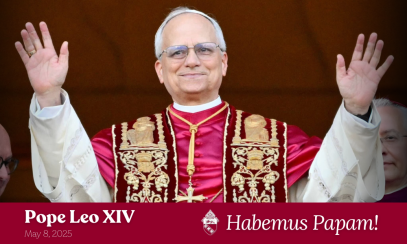
The story of a soul that changed history
Do you know why the story of St. Thérèse of the Child Jesus changed the story of many souls? This saint, also known as Thérèse of Lisieux, is one of the most venerated saints of our time and one of the most remembered figures of the Church.
Do you know why the story of St. Thérèse of the Child Jesus changed the story of many souls? This saint, also known as Thérèse of Lisieux, is one of the most venerated saints of our time and one of the most remembered figures of the Church.
She was a completely normal girl, without any grace or extraordinary gift, known personally by few people because she died very young. Her life was only spent inside her home and then inside the Carmelite convent. However, her autobiography, Story of a Soul, was published a few years after her death, and her words have been a source of restoration for the story of many other souls ever since. St. Thérèse was declared a doctor of the Church because her example transformed the way holiness is perceived and understood today.
St. Thérèse's spiritual path, known as The Little Way, presents the possibility of growing in holiness in simple ways; any believer can follow and put small things into practice, regardless of his or her vocation or spiritual level. The Little Way helps us reencounter our spiritual childhood — to become children in the presence of God the Father — that is, to be dependent, to be filled with hope and to be excited to receive the gifts prepared for us.
In her words, "Jesus deigned to show me the way that leads to that divine furnace, and that way is the surrender of the little child who sleeps without fear in his father's arms."
St. Thérèse understood in depth that the beginning and the end of the spiritual life is grace. Grace is divine love that is undeserved; we cannot obtain through our merits because if it were so, we would never attain it. We can cooperate and respond to God's love, but ultimately, the grace we receive is the beginning and the end of our spiritual life.
Because of her journey, today we can repeat and remember that a holy life can be lived through small and ordinary acts done with great love. This "little great saint" reminds us that the most insignificant and silent daily acts, or invisible and little "heroic" sacrifices, lived with humility and love are enough to grow in holiness and please God immensely.
The heart of her Little Way is the prudence to discern what love asks of us in each situation. Love is the form that each and every virtue takes — this was the great inspiration that opened the doors to her true vocation. St. Thérèse said, "Jesus, my beloved, I have found my vocation: I will be love in the heart of the Church," and this is what her Little Way is all about. Bishop Robert Barron pointed out that the holiness St. Thérèse exemplified is prudence transfigured: prudence is moral wisdom, so The Little Way is prudence being elevated and transfigured by radical love for Christ Jesus.
Another of the great contributions we receive from this Little Way is a renewal of what is known as the universality of grace: St. Thérèse uses a very powerful image to describe this concept by saying that she is not like the great saints of the Church, who are like trees in the middle of a forest. She conceives of herself as a little flower in that forest, who, like the trees, receives and is nourished by the light of the sun. That is what the universality of grace is about: we all receive it no matter how big or small we are. Just as the sun rises for the good and the bad, so is grace freely given to us no matter who we are.
In spite of living and exemplifying these valuable lights for the life of faith, this saint also experienced a great spiritual darkness. God allowed her to experience what many souls who are distant and separated from him feel — doubt. St. Thérèse wondered if heaven exists at the end of our walk on earth; she suffered the doubt of whether it is worth the effort to live Christian truths and virtues. She felt this spiritual darkness through which thousands of souls wander, where we cannot feel the presence and comfort of God. And, this spiritual desert lasted until the end of her life.
St. Thérèse interpreted this spiritual struggle as sharing in the pain and sorrow of many contemporaries who had lost faith in God. She understood that her darkness was an invitation to live and experience firsthand what many suffer when far from the embrace of the Father. However, he never gives up on his vocation nor does he give up on his life of grace. A few weeks before death, St. Thérèse wrote, "This trial was not to last for days or weeks, it will not be extinguished until the hour appointed by God himself, and that hour has not yet arrived."
This month, when we celebrate the feast of this "little great saint," let's ask her to help us open our hearts to the grace that God wants to pour into our personal story and our daily lives. In addition, let's ask for her intercession for someone who is going through a spiritual desert or who is immersed in the darkness of doubt.
St. Thérèse of the Child Jesus, teach us to abandon ourselves as children into the arms of the Father.
Cristina Umaña Sullivan is a cultural sociologist who has been dedicated to evangelization for more than 10 years with a specialty in Theology of the Body and identity creation from a Christian perspective. Email her at fitnessemotional@gmail.com.



